Ethics & Regulation
Highlighting Ethical Issues in Stem Cell Research
Professor Rasko has been a courageous international and national advocate for evidence in medicine. Combatting powerful vested interests and professional challenges, he has confronted direct-to-consumer marketing of unproven stem cell interventions and market-driven drug approvals. Professor Rasko has been a frequent voice emphasising empiricism in the media, in the news, in professional organisations and through scholarly research.
A high impact example was his Guardian article co-authored with Dr Carl Power: “What pushes scientists to lie? The disturbing but familiar story of Haruko Obokata”, published in The Guardian, 1-9, 18 February 2015. This report documented the spectacular fall of the Japanese scientist who claimed to have observed stem cell abilities in regular body cells. It triggered a massive international interest with over 300 (capped) written comments.
Read the Guardian article.
Show drugs work before selling them
As President-Elect (2016–18) of the International Society for Cellular Therapy, Professor Rasko has championed a platform to curtail the marketing of unproven stem cell therapies. He was a founder of the ISCT Presidential Taskforce on Unproven Cellular Therapies, which began its ongoing call to action in 2010. The Taskforce, with the active endorsement and input of Professor Rasko, has provided online resources to inform the public and continues to raise awareness internationally.
Unproven cell clinics continue to damage the public reputation of regenerative medicine and promise of stem cell therapies – what else can be done? Read more here.
Read the ISCT Presidential Task Force on the Use of Unproven Cellular Therapies: Reference Guide here.
As an Associate Editor of the journal Cytotherapy for many years, Professor Rasko also promotes the scholarly peer-review of stem cell therapies. Cytotherapy serves the field of cell processing and therapy as an essential global resource for clinical researchers, oncologists, haematologists, physicians and regulatory experts.
Purchase the book here
Prof Rasko’s latest work is his book co-authored with Dr. Carl Power: “Flesh Made New: The Unnatural History and Broken Promise of Stem Cells”. The book details the dazzling promise of stem-cell medicine: does it work and will it save us?
For decades, we've been anticipating the dawn of regenerative medicine. Again and again, we've been promised that stem cells will soon cure just about every ill imaginable. If not tomorrow, then the next day, or the day after that, and so on. We're still waiting.
This book is an antidote to hype and a salve to soothe the itch for stem-cell salvation. It will take you on a wild historical tour of this scandal-prone field. We expose all the dirty little secrets that the hype merchants prefer to ignore - the blunders and setbacks, confusions and delusions, tricks and lies. You'll meet Alexis Carrel, who discovered how to cultivate cells in a test tube: celebrity surgeon, scientific genius and suspected Nazi sympathiser, he opened the field of modern cell science with an experiment so bogus it blocked the way forward for the next 50 years. You'll meet Don Thomas, who developed bone marrow transplantation - the first successful stem-cell therapy - but only after a miserable decade in which most of his patients died. Alongside true stem-cell pioneers, you'll meet charlatans who cooked their data and claimed fake cures - sometimes with fatal consequences.
Is there any good news? Which of the many promises of stem-cell research have been kept? And what of the future? We can only know where we're going if we have a sense of where we've been. This study tears down the hype surrounding stem cells in order to reveal what's still worth hoping for.
Flesh Made New book reviews
Reading “Flesh Made New”: Hype, hope, and fraud in stem cell research by Tuan Nguyen
Role in Government
Professor Rasko has for almost two decades been directly involved in promoting the safe introduction of new medical technologies especially related to gene and cell-based technology. Having been a founding member of The Gene Technology Technical Advisory Committee (GTTAC), Office of the Gene Technology Regulator (OGTR), in 2000, he has chaired this Committee for almost a decade. Find out more on the OGTR website.
GTTAC provides scientific and technical advice to the Gene Technology Regulator and the Australian Legislative and Governance Forum on Gene Technology (formerly the Gene Technology Ministerial Council) on matters including:
gene technology, genetically modified organisms (GMOs) and genetically modified products (GM products);
applications made under the Gene Technology Act 2000 (the Act);
the biosafety aspects of gene technology;
the need for policy principles, policy guidelines, codes of practice and technical and procedural guidelines in relation to GMOs and GM products, and the content of such principles, guidelines and codes.
Additional commitments to the appropriate regulation of medicinals include his role as immediate past Chair of the Advisory Committee on Biologicals, Therapeutic Goods Administration, Australian Government. Contributions to scientific organisations include co-founding (2000) and past-President (2003-5) of the Australasian Gene & Cell Therapy Society; Vice President (2008-12) and President-Elect (2016-17) International Society for Cellular Therapy; Scientific Advisory Committees and Board member for philanthropic foundations; and several Human Research Ethics Committees.Professor Rasko has chaired the RPA Hospital Institutional Biosafety Committee since 2005.
Find more information, including references, books and links to interviews, click here.


